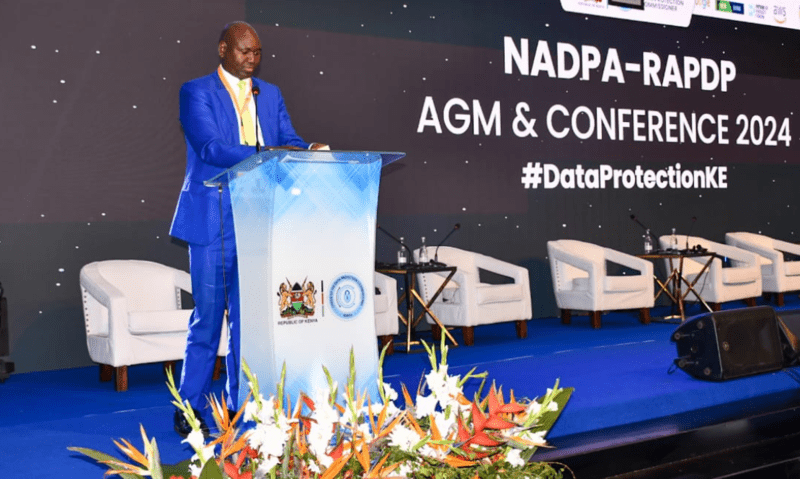Government sets sights on Sh1 billion daily revenue from eCitizen platform

Prof Bitok said the current earnings from the platform get to Sh700 million from its 13 million users, a number that is below the population of registered adults in the country.
The government is targeting to tap Sh1 billion in daily revenue from the eCitizen platform by December this year, Immigration and Citizen Services Permanent Secretary Julius Bitok now says.
This will be achieved by increasing subscribers to the digital services platform to 30 million which will be done by ensuring all eligible Kenyans obtain an Identity Card required to register an eCitizen account.
More To Read
- AG advises Treasury CS to halt Sh50 e-Citizen convenience fee following High Court order
- Blow to State as court declares eCitizen Sh50 charge illegal, halts mandatory school fee payment via platform
- Africa lags in ID cards coverage as experts urge inclusive access
- Government to use new AI system in placement of Grade 9 students to senior schools
- KCSE to start November 2 as Education Ministry unveils 2026 academic calendar
- Audit uncovers 50,000 ghost learners in secondary schools as verification hits 50 per cent
To attract more users to the platform, the government will conduct an aggressive publicity campaign outlining the benefits of eCitizen such as the convenience offered by 24-hour access to over 16,000 online government services irrespective of the physical location of the client.
Prof Bitok said the current earnings from the platform get to Sh700 million from its 13 million users, a number that is below the population of registered adults in the country.
"On average, we are enrolling about 20,000-30,000 people daily. We are at 13 million and we are looking at the entire population of Kenya which is 32 million adults. We are halfway and within one to two years, we should have everyone with a digital ID," he said during the annual Network of Africa Data Protection Associations (NADPA) conference in Nairobi.
The focus of the three-day conference is how African governments are investing in digitisation of services while ensuring inclusion, data protection and data privacy.
"There has been a perception that the Digital ID known as Maisha Card would promote marginalisation in the society. I want to assure everyone that this will not happen. The government has done away with the Vetting Committee, especially in border districts to eliminate this. Digital ID gives Africa a huge potential to transact across borders, bringing down the cost of doing business," Prof Bitok added.
PS @JuliusKBitok says that the government of Kenya is actively undertaking period Data Impact Assessments and data audits on the large volumes of data involved in eCitizen operations. @crs_kenya @NRBKitambulisho @ImmigrationDept @DRSKenya @eCitizenKenya pic.twitter.com/qIY3V23J7c
— State Dept for Immigration & Citizen Services (@C_ServicesKE) May 8, 2024
Prof Bitok explained that the elimination of vetting committees for the issuance of IDs along border communities beginning this month is meant to make it easy for every Kenyan to access a digital National ID and the attendant benefits.
"We have removed vetting for identity documents which is an effort to ensure no Kenyan is left out or discriminated against as far as getting the documents is concerned."
Persons applying for IDs have been receiving the new Maisha Card that is set to change the way Kenyans maintain their official digital footprints and transact business online.
He said the Maisha Card will be more secure from forgery and identity theft and will contain a Unique Personal Identifier also known as the Maisha Namba that will be a lifelong number and will negate the need for different government institutions to collect personal data that is prone to breaches.
"There are four components in this digital ID ecosystem. Maisha Number, given to newborns which will run across their lives, in primary school, secondary, university, NSSF and NHIF and will appear in one's death certificate."
To secure the eCitizen operations, the PS said periodic data impact assessments, data safety audits and compulsory MoUs with third-party data handlers are being undertaken.
Top Stories Today











































